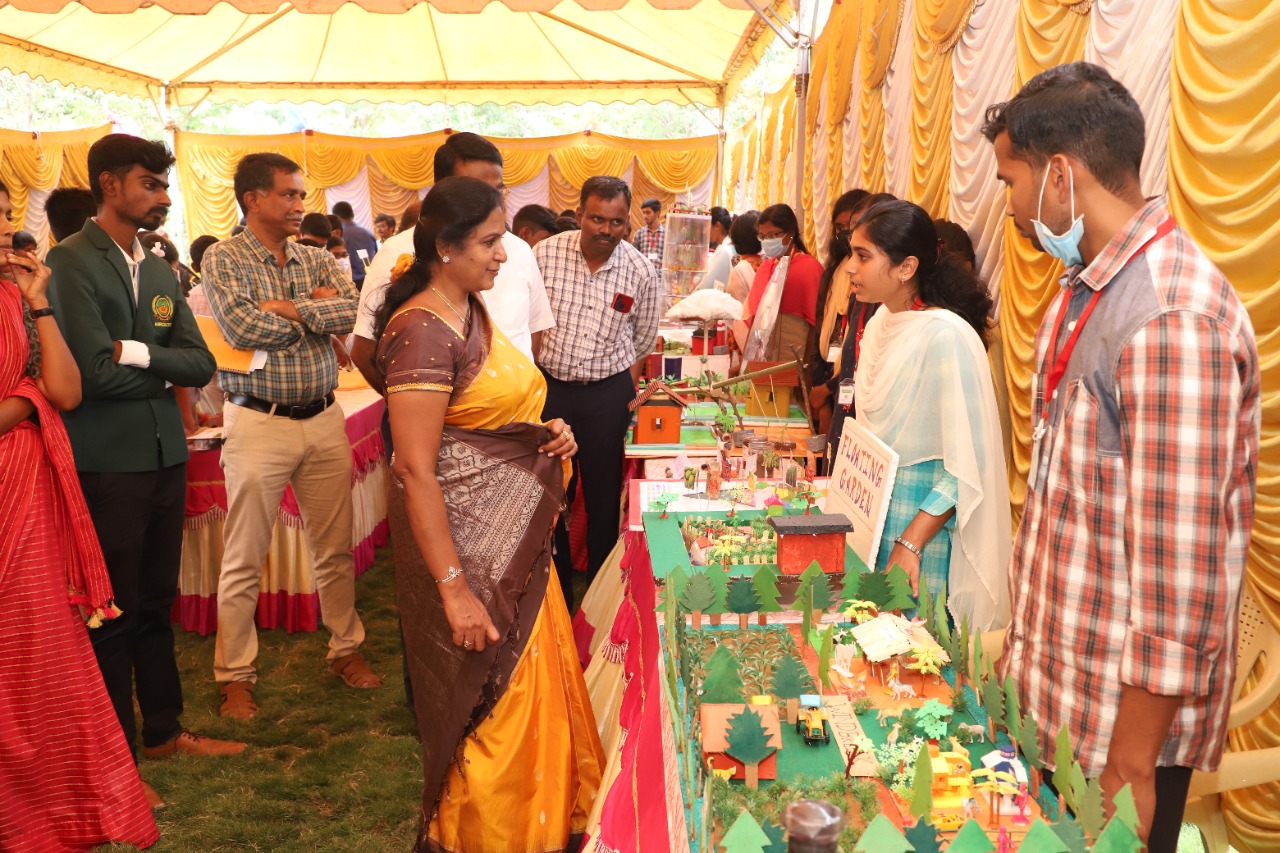The Tamil Nadu Agricultural University (TNAU) had its genesis from establishment of an Agricultural School at Saidapet, Madras, Tamil Nadu, as early as 1868 and it was later relocated at Coimbatore.
Get in touch
- info@tnau.ac.in
- 0422 6611200
- Monday to Friday: 9am to 5pm
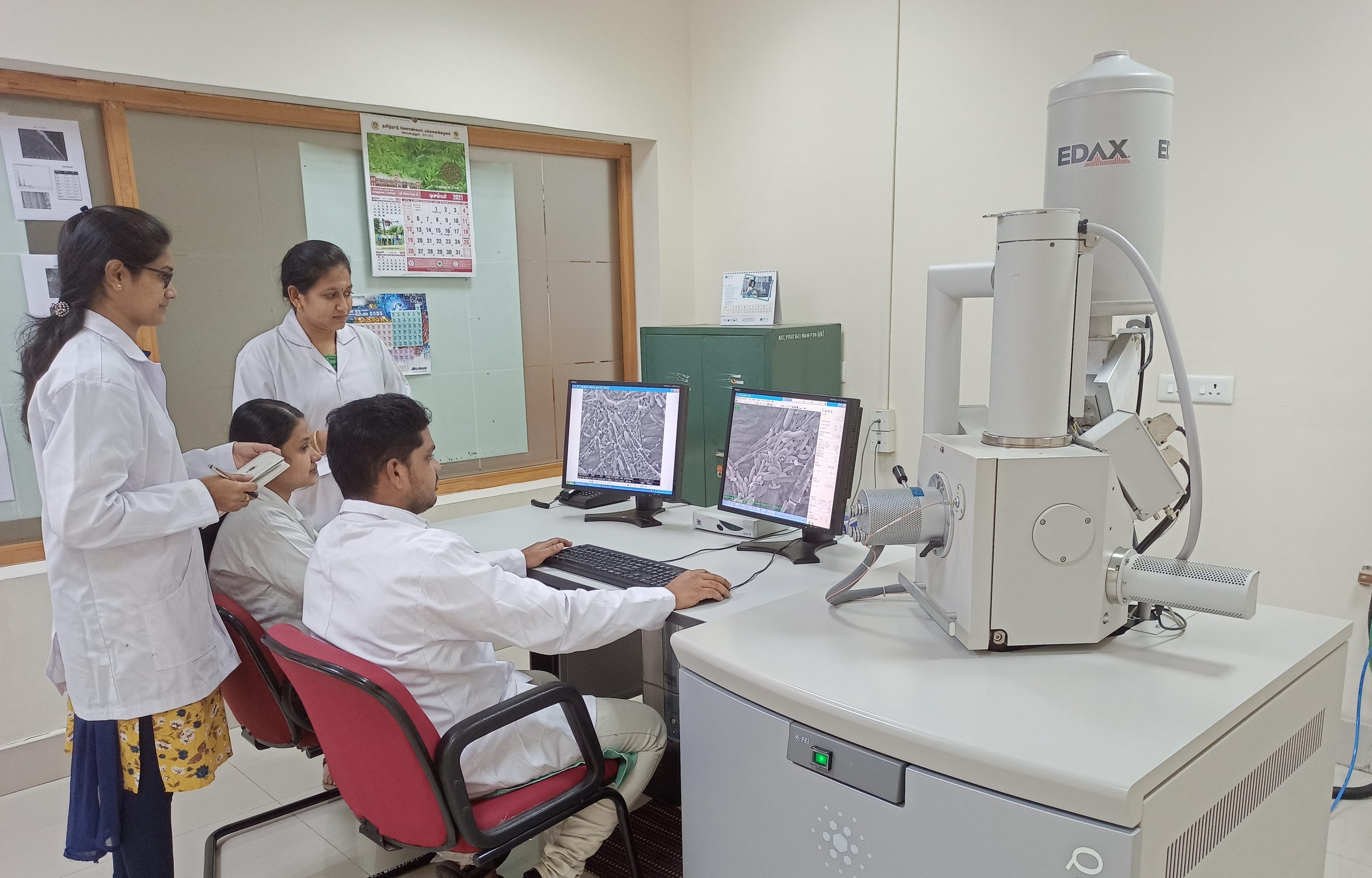
Ph.D. in Nano Science & Technology
Prelude
Nanotechnology begins to revolutionize agriculture and allied sectors. Several nano-products have started reaching the farm gate. Many industries have launched nano-product manufacturing units. Thus, there is a need for design and fabrication of nano-enabled agri-inputs (nano-fertilizers, nano-seed invigoration, nano-herbicides, nano-pesticides), biosensors (on-site detection of leaf moisture and nitrogen content, seed sensor, early detection of diseases, on-site residue detection using SERS), food systems (nano-packaging and nano encapsulation of functional foods) besides nano-remediation of pollutants in soil and aquatic systems. The TNAU has developed the regulatory guidelines for the testing, evaluation and use of nano-products in the country. The CANT serves as the torchbearer in India to adopt anf carry forward
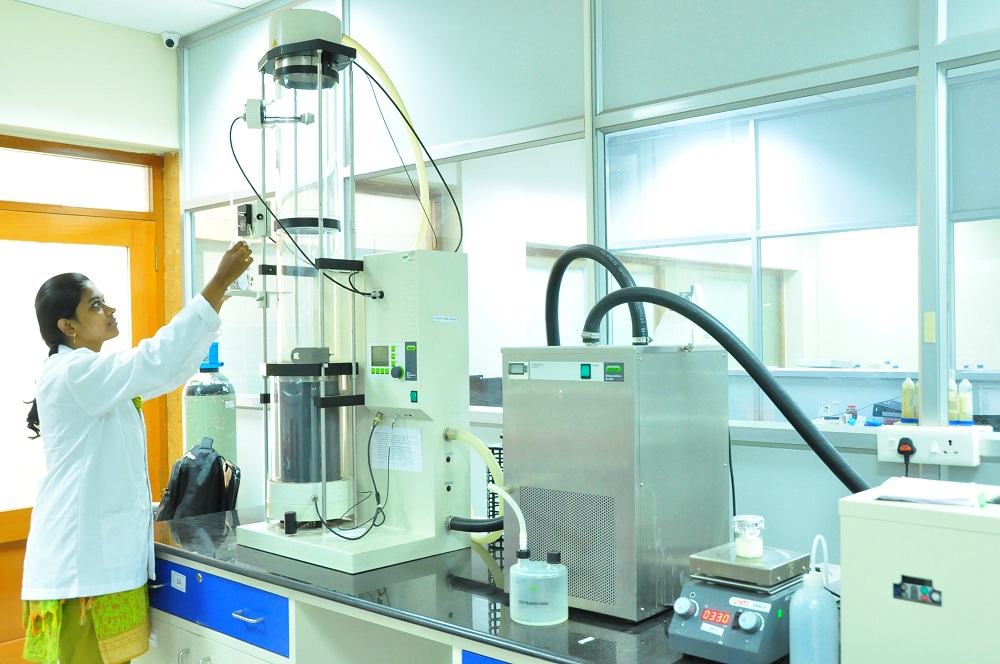
Why this programme?
- Evolve agricultural nano-inputs and formulations for promoting crop productivity besides preserving natural resources.
- Nano-food systems to minimize he post-harvest losses in perishables (fruits, vegetables, flowers) besides encapsulation of functional foods
- Fabricate simple gadgets for the early detection of pests, diseases and nutrient disorders in crops and paste & peel technologies for onsite pesticide residue detection
- Serves as the referral laboratory for the nano-product evaluation as per the stipulated guidelines of DBT
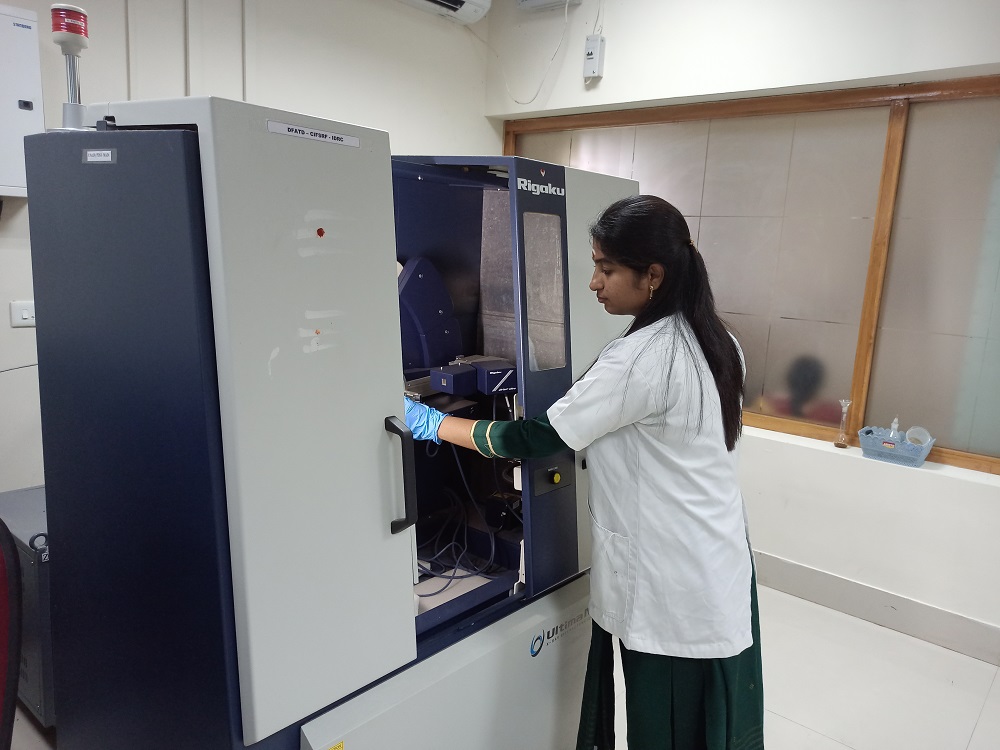
Study Programme
The Ph.D in Nano Science & Technology is yet another unique degree program in the country amongst 77 SAUs intended to cover the following thematic areas
- Design and fabrication of agri-inputs (seeds, fertilizers, herbicides, pesticides, bioinoculants) with improved use efficiency
- Development of bio-sensors for early detection of pests, diseases and nutrient deficiencies, encapsulated nano-food products and energy conserving devices
- Nanotoxicity, environmental nanotechnology and nano-biotechnology to test and evaluate nano-products as per the DBT stipulated guidelines
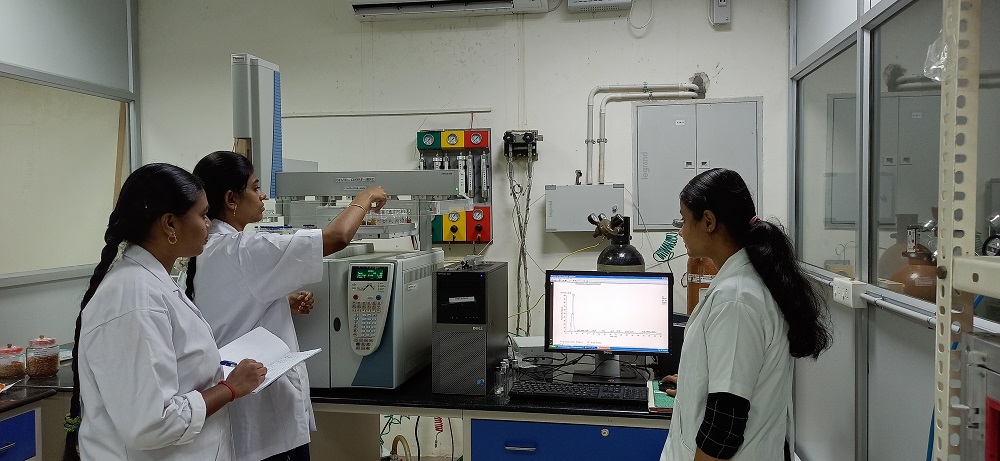
Application and Admission
Those students who have undergone M.Sc (Ag) in Nano Science & Technology will be eligible. Find out more about the specific Admission requirements and the application procedures. If you doubt whether admission is possible, feel welcome to apply online. The Admission Committee will check your admissibility.

Future Career
There is a growing demand for technical expertise in agricultural nanotechnology as many fertilizer and pesticide industries looking for such graduates. For further information See where our alumni are placed
Doctoral in Nano Science and Technology course
Doctoral Courses
After admission, students will undertake courses to understand basics and applications of Nano Science and Technology as per the Choice Based Credit System (CBCS) with a total credit load of 100 credits, of which 75 credits are exclusively earmarked for their Thesis Research.
Doctoral thesis research
After completing the courses in the first year, the students start their thesis research based on the researchable issues identified through the brainstorming session involving external experts. Each student is assigned to an experienced faculty, approved by the Dean of School of Post-Graduate Studies, who would guide the student on his/ her choice of research topic
Research internship
Students are exposed to hands-on-experience with tools and techniques, exchange visits within and outside the country, participation in the international and symposia and conferences besides workshops. Many are encouraged to have internships in other institutes for a couple of months, either in India or abroad.

Student Placement
Student Placement details (2017-18 to 2021-22)
To replace table content
|
Placement details |
|||
|
S. No |
Name of the student and ID # |
Year |
Designation & Company/Firm Placed |
|
1 |
M. S. Kumuthan (2015601303) |
2017-18 |
Technical Assistant, Nagarjuna Fertilizers |
|
2 |
S. Preetha (2015601304) |
2018-20 |
Assistant Professor, Nammazhvar Agri College, Kamuthy. |
|
3 |
Sathiraju Prasangi (2015601305) |
2018 – 21 |
Agricultural Extension Officer at Vijayavahini Charitable Foundation, AP. Village Agricultural Assistant, Andhrapradesh |
|
4 |
Anupriyadharzini (2016601302) |
2018 – 21 |
Union Counselor, Kanyakumari |
|
5 |
K. Prasannakumar (2016601303) |
2018-19 2020-21 |
Assistant Professor, Akash Educational Institute Village Agricultural Assistant, Andhrapradesh |
|
6 |
S. Kiruthika (2016601304) |
2018-20 |
Senior Research Fellow, Dept. of NST, TNAU, Cbe |
|
7 |
Nilan Dharuna (2016601306) |
2019-21 |
Chief Excecutive Officer (NGO), Jayankondan Collective Farming Producres Company Ltd, Ariyalur Dist. |
|
8 |
D. Pradeep (2016601307) |
2018-19 |
Assistant Professor, Pushkaram Agri College, Pudukottai. |
|
9 |
L. Sivashankari (2017602305) |
2019-21 |
Senior Research Fellow, Dept. of NST, TNAU, Cbe. |
|
10 |
Helenrani. R (2018601306) |
2018-21 |
Senior Research Fellow, Dept. of NST, TNAU, Cbe. |
|
11 |
Madhan. K (2019513003) |
2021-22 |
Senior Research Fellow, Dept. of NST, TNAU, Cbe. |
|
12 |
Mukiri. Chinna (2016601305) |
2021-22 |
Senior Research Fellow, Dept. of NST, TNAU, Cbe. |
|
13 |
C.V.Chaitra (12-517-003) |
2015-2022 |
Agricultural Officer, Mangalore |
|
14 |
V.N.Gowtham (13-517-003) |
2016-2022 |
Asst. Manager, Post Office, Chennai |
|
15 |
R.Syndhiya (12-517-005) |
2015-2020 |
ICAR International Fellowship, University of Guelph, Canada |
|
16 |
R.Vivek Kumar 13-517-005 |
2017-200 |
Asst. Manager, State Bank of India, Coimbatore |
Student Experiences
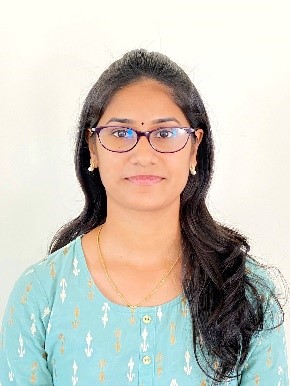
It was my big dream to step into TNAU, and I joined here in 2017. The trimester system was new to me, and we can study a lot in a short period of time. The course syllabus was updated, and the faculty members taught us simply and elaborately. The study tours related to research helped as to think outside of the box. The nanotechnology course always holds a special place in our curriculum where there is always plenty of room at the bottom to learn and be interested. This course provides ample opportunities to learn strategies. The presentations and assignments that we do give us more self-confidence and skills when we face fellow researchers. The training and demo sessions on analytical instruments gave us experience in handling and learning. This course will offer a wide area of research and job opportunities in the future.

I am happy to be a part of the TNAU family since my master’s degree and doctoral degree in Nano Science & Technology at TNAU. The courses I learned during my academics helped my carrier. Being an alumnus, I am very thankful for the updated teaching and learning skills. The practical experiences and hands on knowledge increased the interest over my course. The faculty members are friendly and handle us in a peculiar way of teaching, which made us to understand the subject more. The importance of each subject in the course gave us different experiences. The knowledge gained on this course motivated the students to develop new products and provide solutions to the problems in agricultural nanotechnology. The high-end instruments available here imparted knowledge on handling the instruments. This course helped me to understand the concerns and precautions associated with adopting the nanotechnology in agriculture.

